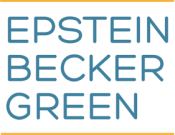Large-scale public-private partnership (PPP) projects are not common in Poland. However, the amendment to the PPP law, which came into effect in September 2018, should change this.
Therefore, we welcome the fact that, recently, the Port of Gdańsk announced a tender for a PPP advisor for the Central Sea Port Project (available in Polish). Thus, the “anchors are aweigh” for this project, which is estimated to cost between €1.4 billion and €2.14 billion, consisting of a new quay to be equipped with two berths, enabling ships carrying various types of cargo to be serviced.
The contracting authority is seeking an advisor comprising a multidisciplinary team of (i) engineers, (ii) financial experts and (iii) lawyers for a multiyear contract that will run through the proposed tender for a private partner to commercial and financial close.
Assessment of the Advisor’s Quality
Interestingly, 50% of the assessment of offers will be based on cost and 50% on quality, with the latter being based on a written opinion prepared by the bidder to be delivered with the bid, addressing which proposed scenario for the project is the best legal and financial solution. The contracting authority attached a statement of facts describing the proposed scenarios and the questions to be covered by such opinion.
Under Polish law, the “quality” criterion can be used to assess offers, including the assessment of opinions prepared by the bidders. The National Appeals Chamber emphasises that when assessing the quality of legal opinions, the contracting authority ought to specify very detailed criteria to be considered in the assessment. This, however, always gives rise to controversy, because while it is rather easy to ascertain the quality of coffee that may be shipped to the Port of Gdańsk, for example, it is not as easy to assess the quality of an advisor’s work product.
Therefore, because “quality” – which is, in essence, evaluative – is one of the offer criteria, the contracting authority may find it daunting to impartially, clearly and exhaustively satisfy the bidders that the factual basis of the selection made is correct and defensible, drawing on the specified criteria.
Contrary to an Old Saying, the Egg May Actually Be Smarter Than the Chicken
It is imaginable that in complicated matters, but ones that are quite common to the contracting authority, the contracting authority using its ample experience is able to verify the “quality” of the opinions concerning issues that are its bread and butter and which it may entrust to third-party contractors. Yet, with an intricate PPP project (and given the history of PPP in Poland), an open-ended question arises as to how the tender commission will assess such offers and the opinions therein.
If it accepts the task, will that mean it assumes its expertise is equal to if not greater than that of the applying consortia of technical, financial and legal advisors? The tender commission of the contracting authority will assess, among others:
-
The “adequacy” of the legal provisions cited and the “correctness of the applicable provisions’ construction”. The latter may, if history is any indication, lead to a rather serious discussion among lawyers as to which interpretation is the most correct, all the more so if the bidders should doubt the competences of the “judge” that the contracting authority would become.
-
The contracting authority also intends to assess the “correctness of risk identification” on the part of the future advisor. One might wonder if the contracting authority knows which risks are reasonable and which are not. The question may be posed: why is it looking for an advisor in the first place?
-
Finally, the contracted entities’ opinions will be assessed as to whether they have been drafted in “approachable, communicative and clear” language. At this point, another question arises – which the contracting authority may undoubtedly be formally asked – whether it is aware of any infallible formula like, for instance, the Sèvres metre measurement. What are the tender commission’s style preferences? Are they closer to Marcel Proust in The Guermantes Way or would they rather opt for the concise novels of Thomas Mann?
From the outset, the advisor selection procedure (or rather the procedure for the assessment and selection of the advisor) is worthy of attention. The contracting authority may extricate itself from a potentially uncomfortable situation by awarding each bidder 50% of the points for the quality of its opinion, meaning that the selection would be based on price alone. Otherwise, there is a risk that the National Appeals Chamber and perhaps, in case of adversarial action, the Circuit Court in Gdańsk will make (at the contracting entities’ prompting) a game-changing (and bold) attempt to determine the interpretation of the terms “adequate”, “correct construction of the laws”, and “approachable, communicative and clear” language. The potential definition of the characteristics of the Polish language will be particularly ground-breaking in the Polish legal environment.




 />i
/>i


